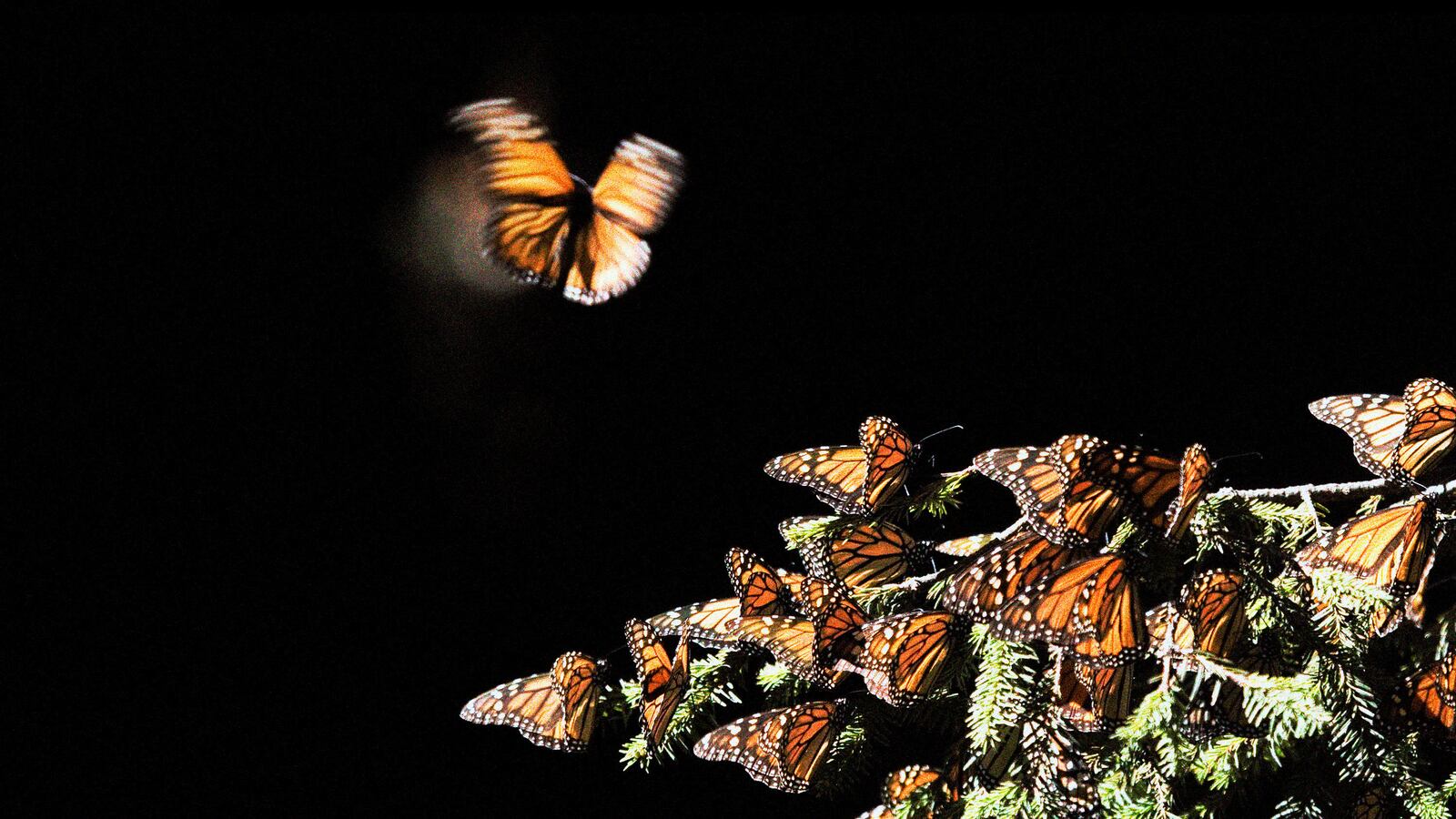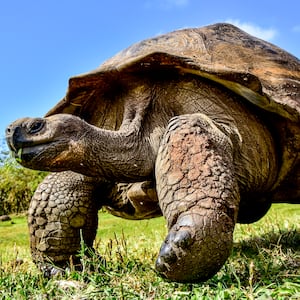Monarch butterflies spend the warm months migrating throughout the United States and Canada, before congregating in their mountain forest habitat in central Mexico to wait out the North American winter. While citizens of all three countries treasure the monarch’s presence, some of the highest costs of conservation have been “paid” only in Mexico. More specifically, rural and Indigenous communities in Mexico have lost access to lands deemed crucial for the monarch. This “solution” has been imposed on the communities by outsiders, and has undermined a traditional system where humans, monarchs, and other plant and animal species shared the forest successfully.
Migratory species like the monarch butterfly provide an object lesson in the interconnectivity of both landscapes and people. Effective and lasting conservation of migratory species must be a true collaboration between many kinds of communities, spanning countries and cultures. Yet migratory species are in decline, in part because conservation efforts too often disregard the communities that have historically protected them. Our research shows that already advantaged groups—tourists, bird watchers, wealthier farmers—tend to benefit from migratory species. Benefits may come in the form of pest control, pollination, or tourism. Less advantaged groups, often rural and Indigenous people or communities in the Global South, meanwhile, pay a cost in lost economic opportunity to preserve habitats, reaping little or nothing in return. The people protecting habitat deserve compensation. Justice demands it. Practicality demands it too. Conservation efforts that reinforce inequity are not sustainable. Equity in conservation efforts is not only the right way to preserve species—it is the only way.
Historically, conservation subsidies have focused on a single place, where one group gives up an economic opportunity to preserve habitat while another group benefits. The ecosystem service benefits of a migratory species as well as the costs associated with their conservation can be calculated, not only in a single spot but across their entire range. Where there is imbalance, groups that benefit should compensate groups that sacrifice—no matter how many miles separate them. People who have invested in a distant community’s success deserve a return.
Work has already begun in this area. For example, back in 2017 we published findings in Ecology and Society, showing that Texas and New Mexico received an estimated $12.4 million value in pest control services per year between 1994 and 2008 from the Mexican free-tailed bat, thanks to the bats’ appetite for Helicoverpa zea, a moth that does considerable damage to cotton and soybean crops. More research is needed to quantify any costs and benefits for rural farming communities in central and southern Mexico, who protect the habitat where the bats spend the winter. Bats also have a healthy appetite for the pests that plague tomatoes, maize and sorghum, common crops in Mexico. Is there an imbalance between the benefits and costs to farmers in the U.S. and farmers in Mexico? If so, receiving subsidies would encourage communities in Mexico to protect bat habitats and would also promote the economic justice that will make these arrangements strong and lasting.
This form of compensation concerns itself not just with equality, but with equity. It strives for fairness while recognizing that all people do not start out on equal footing. Solutions must address those power differences. In the cases of both the monarch butterfly and the Mexican free-tailed bat, communities in the Global South are made to forgo economic opportunity for the conservation of animals that provide significant reward to the Global North. It perpetuates the centuries-old problem of societies from the North extracting resources from the South. In addition to material imbalance, there has been an intellectual and cultural one. As we saw with the monarchs, Indigenous communities had developed sustainable practices that protected the insect’s habitat. But traditional understanding is often ignored in favor of science that is generally an import from the Global North.
In our studies of the Mexican free-tailed bat, monarch butterfly, and northern pintail duck, we found that Indigenous communities often contributed to benefits reaped by the descendants of colonizers and settlers. Indigenous communities in Alaska and Canada rely on the pintail as a source of protein. These communities developed planting schedules designed to avoid disruption to the birds’ migration. Nevertheless, the numbers of this important food species are dropping—down by approximately half since the mid 20th Century. The U.S. government buys large tracts of land from colonial descendants, where it encourages sport hunting of the ducks, an activity that generates fees. Sport hunting is prioritized over traditional subsistence hunting. Or to put it in context: European-American customs take precedence over Indigenous ones.
We have also observed a rural versus urban inequity even within wealthy countries like the U.S. and Canada. During the summers, the monarch butterfly’s beauty is a delight for people in more urban communities, who sacrifice nothing for the privilege. But getting monarch numbers up will require work in rural areas in the U.S. and Canada. The insects lay eggs on and feed off milkweed, which has been decimated where herbicide-tolerant genetically modified corn is planted. How many farmers can take on the challenge of reducing herbicide use, and risk crop loss, without financial incentive?
Limiting herbicide use would not only benefit monarchs but many other species harmed by the chemicals, including humans. Agricultural workers, again disproportionately rural and with roots in the Global South, suffer cancer, reproductive harm and more because of chemical exposure. None of this is about pitting the needs of humans against non-human species. Rather it is about finding a fair and reasonable way to encourage biodiversity, which benefits us all.
If we humans want to help these other species, we must start by working toward equity within our own.








